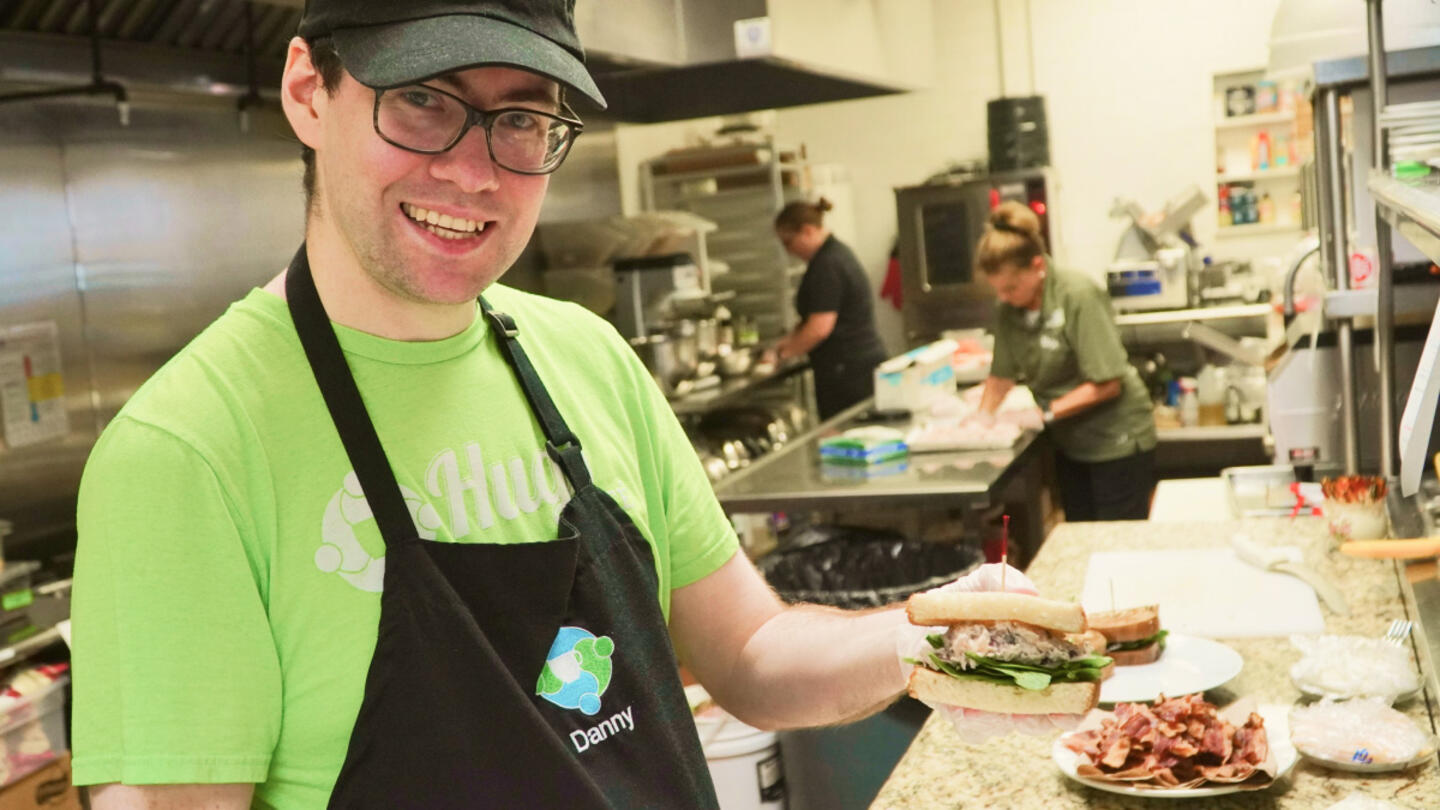“I would rather us emphasize the cooperative work we can do together to lift everybody up, rather than the work of tearing things down. Because I have not met that many people who want to tear things down who could build them back better.”
This quote from Eboo Patel, founder of Interfaith America, sums up his experience facilitating collaboration on shared challenges among people from different beliefs and backgrounds. In today’s climate, it gives reason for hope.
America is at a critical point.
In the months immediately following the October 7, 2023, attack on Israel, the United States witnessed a staggering 337% increase in antisemitism compared with 2022. Instances of discord appeared in businesses, communities, and other institutions. And many Americans were subject to other forms of discrimination and hate.
These trends showed up starkly at colleges and universities — the very places intended to offer people a place to grow, develop, learn, and freely engage with new people and ideas. Upheavals on campuses in the form of vandalism, violence, and — at times — outright hatred provided evidence of growing distrust, division, and dehumanization in our country.
Since 2002, Patel and his team at Interfaith America have been responding to these kinds of challenges by equipping individuals and communities with the tools and resources to create cultures of openness and respect. In addition to their initiatives with national faith leaders and their campaign with thousands of community organizations across the country, they have an active network of more than 600 college campuses.
Interfaith America’s programs have real impact. Higher education research by Matt Mayhew at Ohio State University and Alyssa Rockenbach at North Carolina State University found that campuses using their programs experienced positive cultural shifts around pluralism, with more students believing in positive relationships across religious differences. The research also showed that increasing student pluralism correlated to increased appreciation for specific religious groups.
And they aren’t alone in showing what’s possible.
Accelerating pluralism-strengthening efforts on campuses
The “See No Stranger, See No Enemy” Pluralism Accelerator Fund was launched in response to the rise in distrust, division, and hate since October 7, 2023. The collaboration brought together support from more than half a dozen different philanthropies and provided grants to more than a dozen high-performing organizations.
Sign up for the Strong & Safe Communities newsletter for stories, ideas, and advice from changemakers working with their neighbors to address the biggest problems we face.
Each group demonstrates a commitment to pluralist practices — the principles and skills that enable diverse people to live together better. The organizations are also in a position to implement research-backed projects that are ready to scale and deepen their impact.
These groups are redoubling efforts on higher education campuses to decrease division and foster respectful, open, and dynamic environments. The programs range from trainings that equip student journalists to report on conflict to initiatives for college presidents to advance civic engagement among students.
Though each organization offers different products and services, they all deploy rigorous, creative practices that empower students, faculty, and administrators to foster relationships across differences, facilitate difficult discussions, transform conflict, and navigate the heated issues of the day.
Now, they’ll have an opportunity to do even more.
What is pluralism, and how is it relevant to this moment?
“America’s motto is ‘E Pluribus Unum’: out of many, one. Pluralism, at its simplest, is the idea that we can build unity through protecting and respecting our differences,” said Stand Together Senior Vice President Evan Feinberg. “Combating hate is vital but not sufficient. We’re working to build a culture where every person has the opportunity to contribute and live out their American Dream.”
But are pluralist approaches sufficient to address the real challenges America faces today? Nealin Parker, the executive director of Search for Common Ground USA and a “See No Stranger, See No Enemy” grantee, believes so. While she can cite her organization’s international and domestic track record, she also looks to recent history:
“Pluralist nonviolent approaches undergirded the end of colonialism in both India and across Africa,” Parker said. “They forged massive changes that ended Jim Crow in our own country and have ended dictatorships, like that of Chile — plebiscite 1989. Pluralism underwrote the end of apartheid in South Africa.”
“The eradication of prejudice is not enough; we must proactively build a diverse democracy and cherish the contributions of all,” said Patel.
“Pluralism is the genius of America,” he noted. “It means cooperating across differences to lift people up. It means recognizing that diversity is a treasure, identity is a source of pride, cooperation is better than division, faith is a bridge, and everyone is a contributor.”
To see the full list of supported partners and projects, visit PluralismAccelerator.org.
***
Pluralism Accelerator is supported by Stand Together Trust, which provides funding and strategic capabilities to innovators, scholars, and social entrepreneurs to develop new and better ways to tackle America’s biggest problems.
Learn more about Stand Together's efforts to build strong and safe communities and explore ways you can partner with us.

People with disabilities want meaningful work — and Hugs Cafe is making it happen.

At this ‘resort,’ children with intellectual disabilities are seen as gifts to be celebrated and loved.

Veterans experience loss when leaving service. Could this be key to understanding their mental health?

The Grammy-nominated artist is highlighting the stories we don’t get to hear every day.
